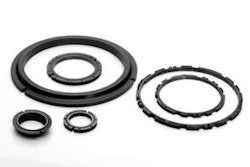DOVER, Del. (AP) — Environmental groups on Tuesday lost an appeal of a state-issued permit for a new crude oil transfer station at the Delaware City refinery.
Members of Delaware's Coastal Zone Industrial Control Board voted unanimously to dismiss the appeal by the Sierra Club and the Delaware Audubon Society, ruling that they had no standing to challenge an air quality permit granted to PBF Energy in May.
The permit granted by state environmental secretary Collin O'Mara involves loading unrefined crude oil onto barges at Delaware City for shipment to another PBF refinery in Paulsboro, N.J. The barge loading operation is part of a larger transfer operation in which PBF brings crude oil by train from various sources, including tar sands oil from Canada, to a new rail loop it built near the Delaware City refinery.
The environmental groups argued that PBF's crude oil transfer operation, including the rail system, involves new facilities and new activities not allowed under Delaware Coastal Zone Act, a 42-year-old law designed to protect Delaware's coastal environment from industrial pollution.
But O'Mara concluded that the barge loading operation at PBF's docking facility did not amount to new heavy industry or manufacturing and was not an expansion subject to review under the Coastal Zone Act.
"We thought it was pretty clear that it was a pre-existing nonconforming use that was allowed under the act," O'Mara testified Tuesday.
Ken Kristl, an attorney for the environmental groups, said he likely would appeal the board's dismissal to Superior Court.
PBF has spent millions of dollars on the new rail facility and improvements at the refinery, which employs hundreds of workers. The company also has said the crude oil transfer operation is critical to its long-term business strategy. Refinery attorney Bart Cassidy suggested Tuesday that if the new crude oil transfer operation was disallowed, the refinery would not be "economically viable."
PBF bought the refinery in 2010 for $220 million after Valero Energy said it would halt operations there and lay off 550 workers.
Gov. Jack Markell's administration provided $20 million in incentives to PBF to restart the refinery and has supported the new crude oil transfer operation.
"The Coastal Zone Act is an important element of Delaware's environmental protection laws, but in 40 years it has never prohibited the construction of rail facilities," Markell spokeswoman Cathy Rossi said in a prepared statement Tuesday. "Although the refinery has substantially reduced emissions in all categories, its opponents now want to limit its access to North American crude by arguing the rail loop, which is more than two miles inland, is a prohibited docking facility."
Kristl argued that the status of the docking facility under the Coastal Zone Act, which prohibits new bulk product transfer facilities, could not be divorced from the rail operation that delivers the crude oil being loaded onto the barges.
"The rail loop is an essential part of transferring that crude oil from the tanker cars to the docks," he said. "... They're all one piece together."






















